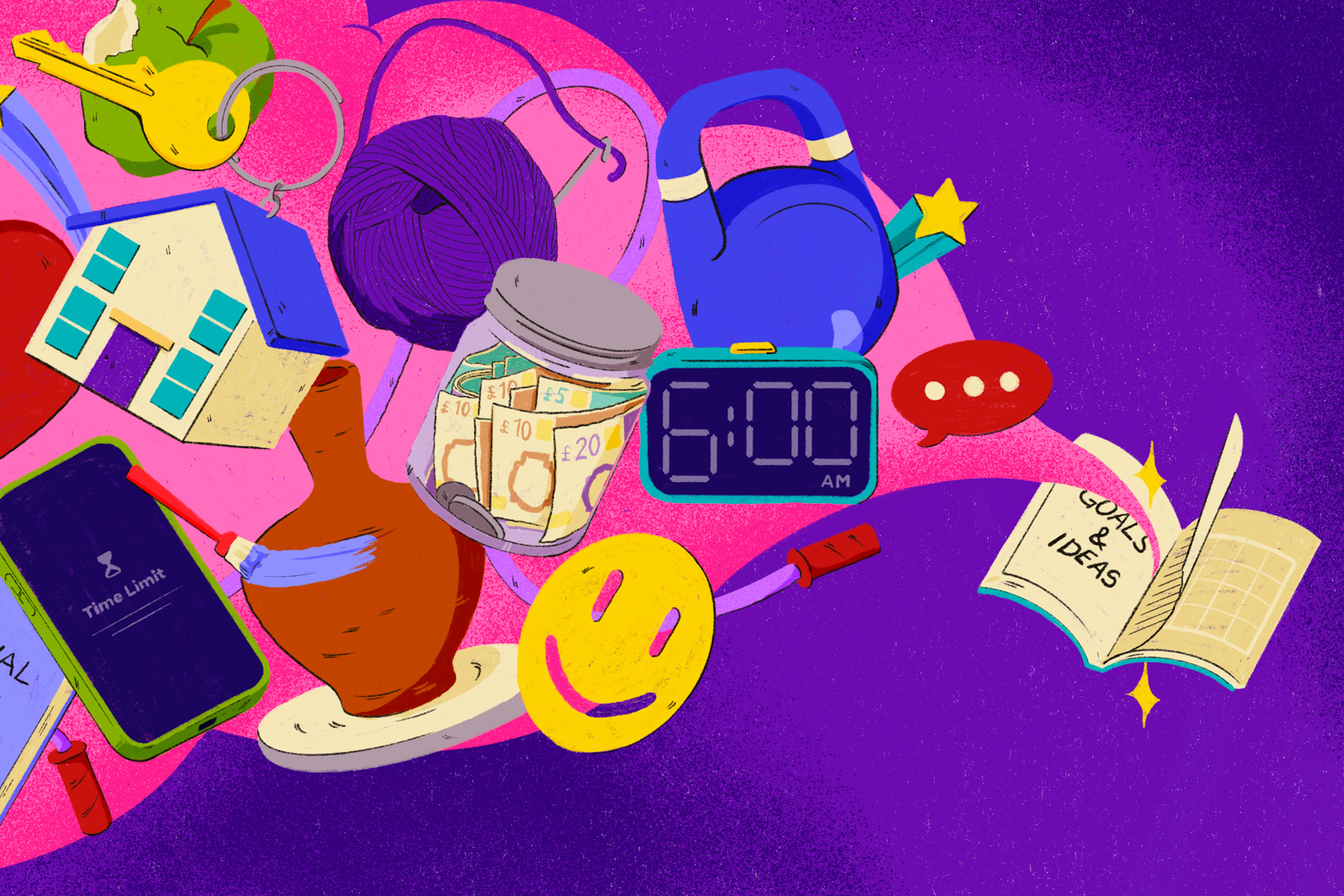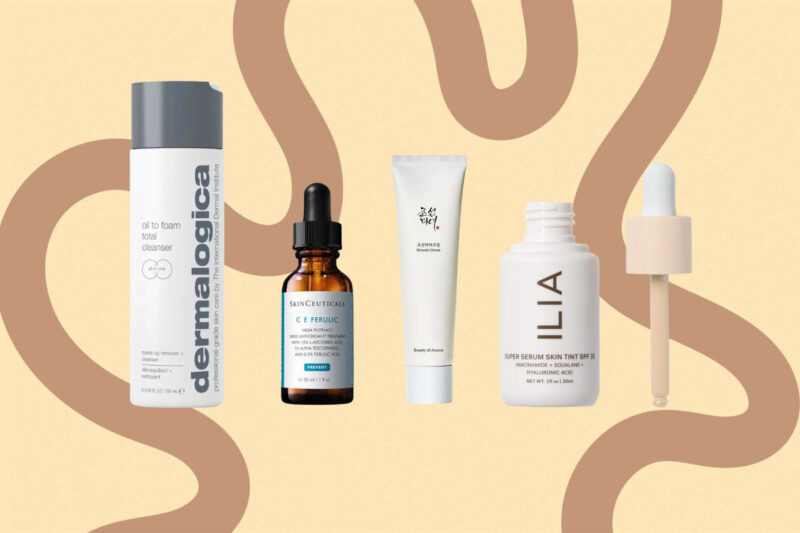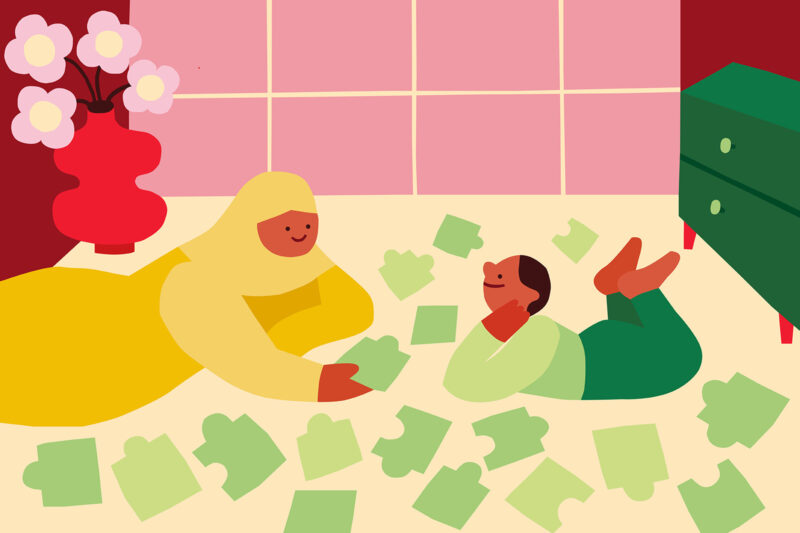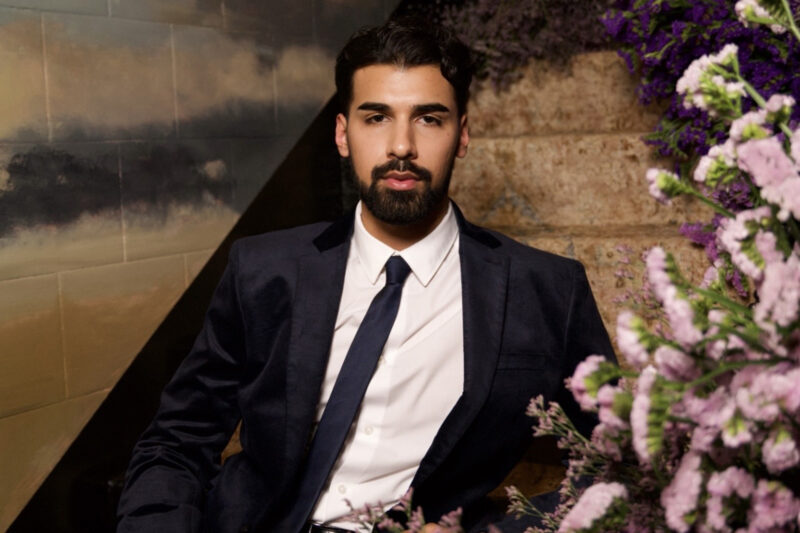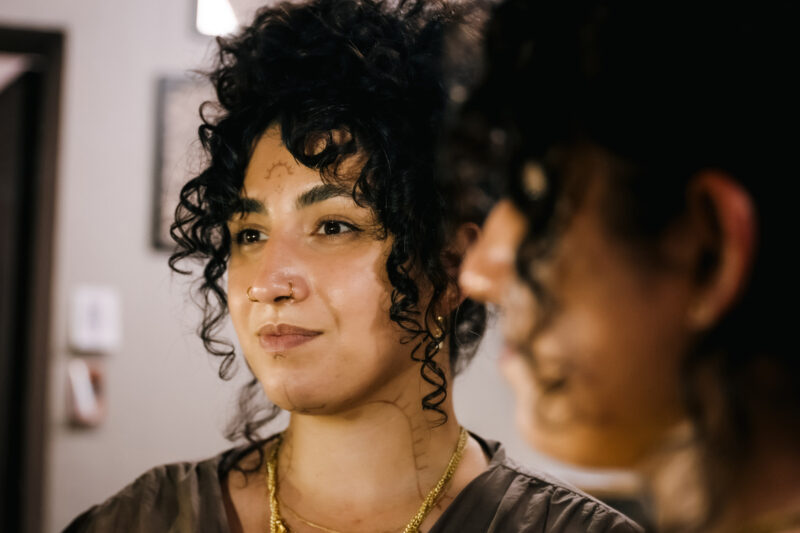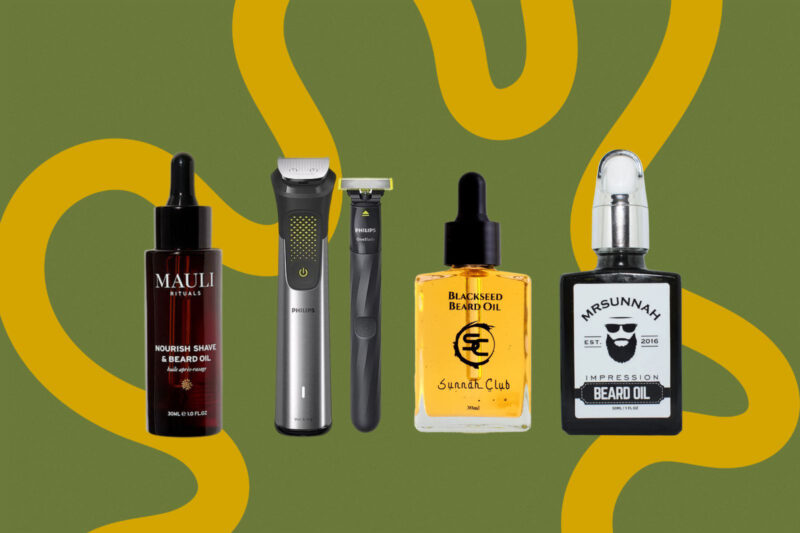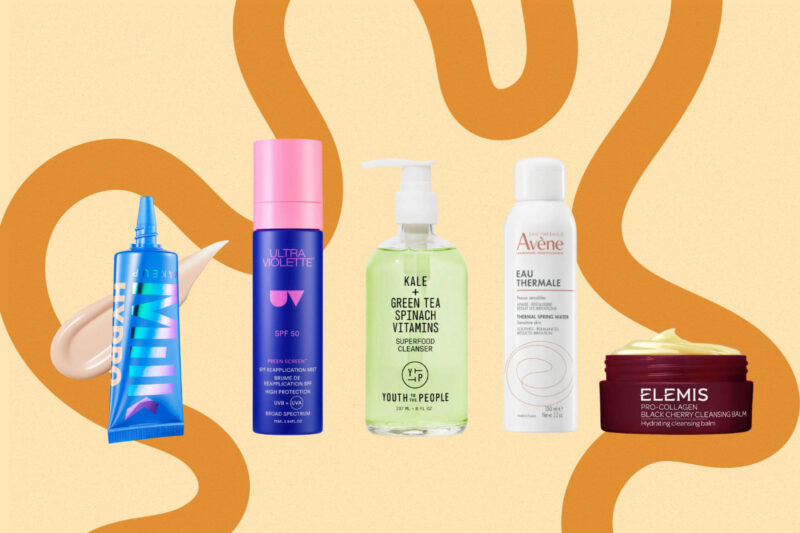How Islam can help you sleep — and other tips to get some shut-eye
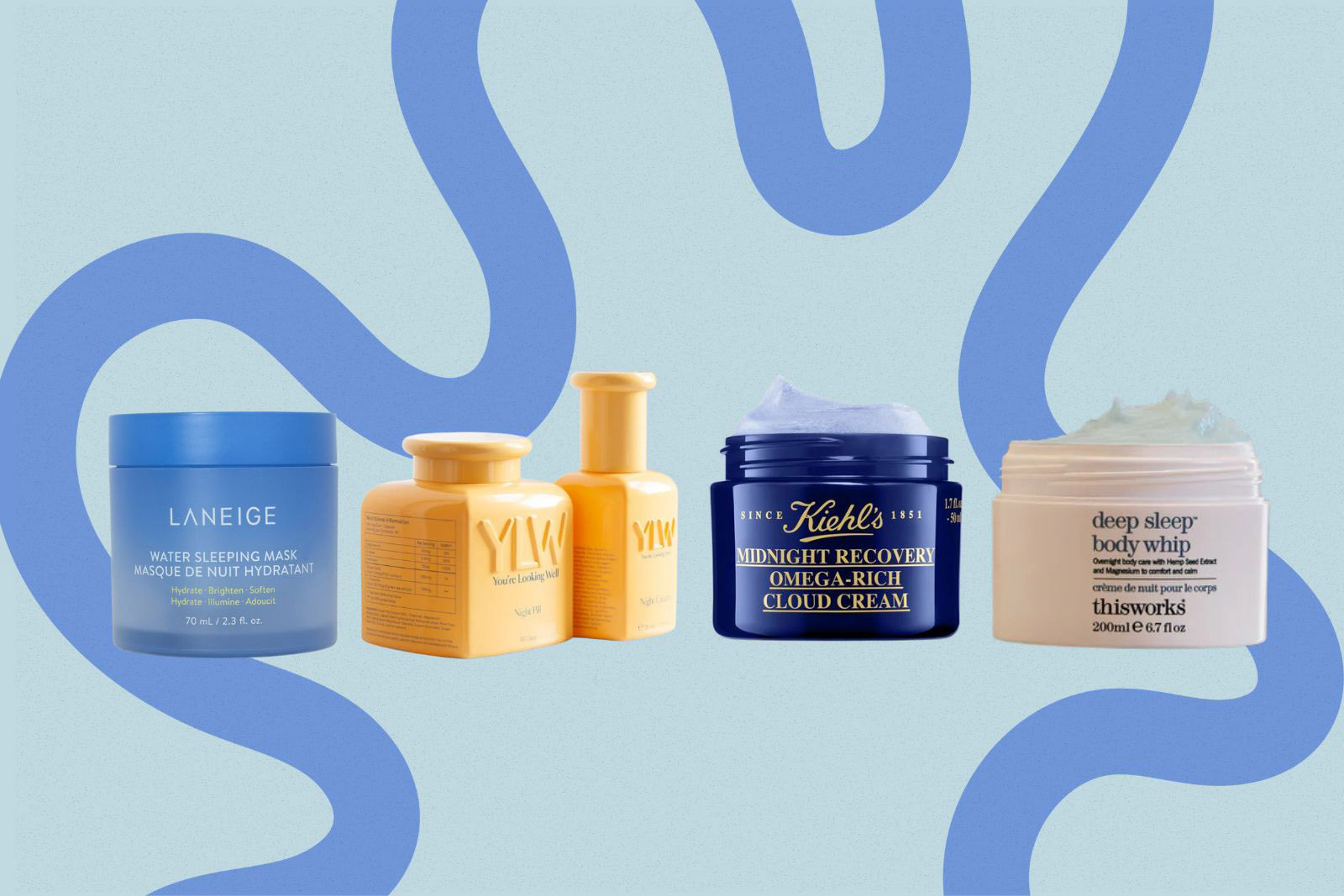
Here’s how to maintain your bedtime routine throughout the winter months, with the help of the Qur’an and useful self-care products
If you’re anything like me, as winter approaches and your body attempts to hibernate like a bear with no deadlines, you might be struggling to wake up. And despite — or because of — the abundance of darkness, some of you will be finding it harder to fall asleep at night.
While good sleep is important all year round, it can feel especially difficult to maintain a good sleep routine as daylight saving time wreaks havoc on our circadian rhythms. Lack of sleep can affect anything from your brain’s ability to form memories to your body’s preparedness for fighting off whichever lurgy is going around the office this month.
Social media is full of advice of varying levels of usefulness about how to get the perfect night’s sleep, from sleepy girl mocktails to mouth taping — taping the mouth so as to promote nasal breathing and, allegedly, a snatched jawline. Videos sharing “morning shed” routines continue to flood TikTok with content creators showing off the layers of products they covered themselves with the night before. But to me they seem to have more in common with a mummy rising from the dead than a normal person waking up naturally well rested. While some of these practices can be beneficial, others are pointless or sometimes even harmful.
I’ve looked instead to Islam, which offers much advice about sleep, from which position to sleep in (on your right side) to the best time to take a nap (just before or after midday). Much of this guidance aligns with that being pushed by the wellness industry amid new scientific research from the Nsukka Journal of the Humanities, which suggests practices such as structured sleep and adhering to circadian rhythms can have health benefits. Other advice includes making wudhu before sleep, reciting dhikr and salawat, and keeping your sleeping environment clean and dark.
The Qur’an mentions the importance of maintaining a pattern of light and darkness in line with our natural circadian rhythms, and much sunnah and hadith regarding optimal sleep patterns are influenced by prayer times. The hour after fajr is considered blessed for productivity and Muslims are encouraged to use it for work rather than returning to bed. Conversely, we are urged to avoid activity and conversation at night after the isha prayer. Isha currently being at 5pm in the UK makes this difficult, but we can translate this advice to the modern context and GMT time zones by emphasising night as a time of rest — being mindful of our evening habits and not doomscrolling on the phone before bed.
While the most effective sleep advice given by experts is maintaining a consistent bedtime and making sure your bedroom is cool and dark, there’s no harm in incorporating a few products into your self-care arsenal to help you drift off. For me — a woman who takes both sleep and ambience very seriously — this means lighting a candle with sleep-supporting scents such as lavender, jasmine and chamomile, a good pillow mist, and a warm orange-hued bedside lamp. Also, a light-blocking silk eye mask.
A bedtime ritual such as showering before bed can also help signal to your brain that it’s time to start winding down. I am a long-time lover of Lush’s Sleepy Shower Gel, it smells great and Lush is one of the few major retailers who have shown meaningful solidarity with Palestine.
This Works uses 100% natural fragrances and essential oils and its Deep Sleep fragrance is available in a range of products, from pillow spray to my current favourite: a magnesium-infused body whip that feels like rubbing silk into your skin.
For my face, I alternate between Kiehl’s Midnight Recovery Cloud Cream, which has a lovely delicate lavender scent and colour, and Laneige’s Water Sleeping Mask for when my skin feels like it needs an extra boost of hydration.
If you’re looking to simplify your routine and invest in wellness products that are science-based rather than vibes-based, You’re Looking Well offers The Regime, a sleek collection of four products: dermatologist-approved day and night cream, and clinically-tested magnesium and L-theanine supplements, which are said to help the body wind down and increase both the duration and quality of sleep.
It’s also important to remember that spending too much time worrying about the quality and quantity of your sleep — such as the sleepmaxxing trend, the viral term for any hack for improving sleep — can have the opposite effect.
A new sleep-related beauty trend I am into, however, is perfume for sleep, which is said to have a “gentle cocooning effect”. Ariana Grande’s aptly named R.E.M. has been my go-to sleep scent for years, but my latest obsession is Phlur’s Missing Person eau de parfum, featuring soothing notes of jasmine, orange blossom, and musk. Sweet dreams.
 Newsletter
Newsletter


